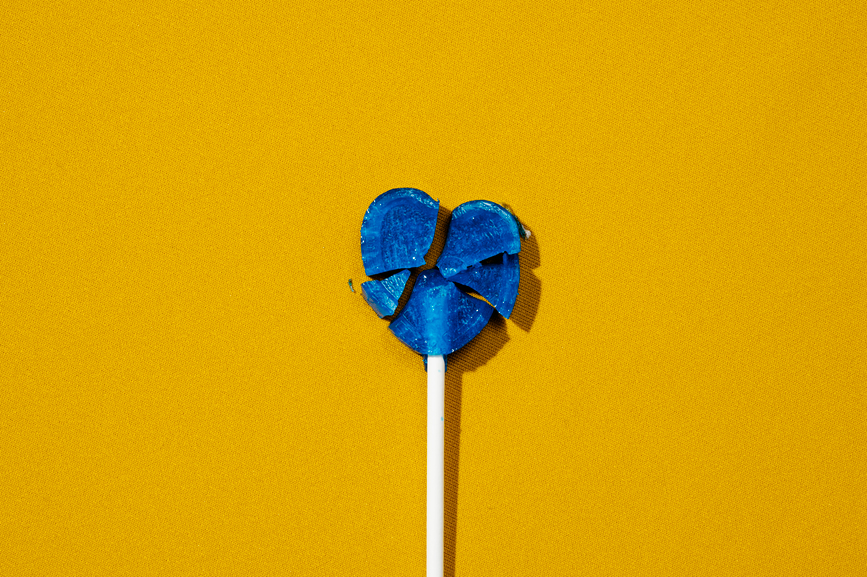However is the bogus stuff actually higher than plain ol’ sugar? That’s the place issues get just a little sticky. In line with Maya Feller, RD, CDN, Brooklyn-based registered dietitian and writer of Consuming from Our Roots, the information on synthetic sweeteners is bittersweet. “We may all profit from extra analysis on synthetic sweeteners,” Feller says. “That is required to definitively assess its affect on the physique.” That mentioned, diet science has uncovered some science on the topic. Forward, Feller delves into what can doubtlessly occur to your physique (and intestine) when—or if—you determine to chop again on synthetic sweeteners.
The conflicting science round synthetic sweeteners
The subject of synthetic sweeteners is a hot-button challenge in well being and wellness areas…however with scant quantities of definitive scientific backing, says Feller. Through the years, some analysis has prompt that sure kinds of synthetic sweeteners could also be related to regarding well being points, together with an elevated threat of most cancers, disrupted intestine microbiome, and an elevated threat of cardiovascular well being issues together with coronary heart assault and stroke. Nevertheless, different research have concluded that synthetic sweeteners are possible not linked to well being points like most cancers…making issues all of the extra complicated.
Then final 12 months, the World Well being Group (WHO) added gas to the fireplace final 12 months when it really useful that individuals not use synthetic sweeteners for weight administration as a result of potential of long-term well being impacts. But the Meals and Drug Administration (FDA) and different meals security authorities stand by the protection of aspartame and different synthetic sweeteners. So…what offers?
Principally, we’d like extra high quality analysis. Regardless of being a number of the “most-studied substances in our meals provide,” says registered dietitian Kris Sollid, RD. “There’s sufficient controversy surrounding the doubtless useful and detrimental results of low- and no-calorie sweeteners to warrant additional research within the type of randomized management trials in a number of populations,” Feller provides.
However does synthetic sweetener, or common sugar for that matter, deserve the dangerous rap it usually will get? Possibly, perhaps not. Feller says though there’s been hypothesis that low- and no-calorie sweeteners may have detrimental implications on sure well being outcomes, the information continues to be inconclusive. “Observational research have proven associations between hostile well being results and the consumption of low- and no-calorie sweeteners,” she says. (Observational implies that researchers collected information from members or checked out pre-collected information and noticed what individuals’s outcomes are.) However these associations have not been confirmed by randomized managed trials (RCTs), aka the gold customary of analysis the place particular interventions or remedies are examined straight on individuals picked at random.
“When rigorous intervention research have been performed to check potential hostile well being results of low- and no-calorie sweeteners…the randomized managed trial proof exhibits impartial and constructive results; not detrimental results.” —Maya Feller, RD, CDN
Actually, Feller notes that proof from different randomized managed trials have proven the alternative impact. “In different phrases, when rigorous intervention research have been performed to check potential hostile well being results of low- and no-calorie sweeteners prompt in observational analysis, the RCT proof exhibits impartial and constructive results; not detrimental results,” she says. (Principally, in these trials, synthetic sweeteners usually haven’t any impact or a constructive affect on an individual’s well being.) “In terms of connections between meals and well being, impartial shouldn’t be seen as detrimental,” she says.
Feller says that conflicting information results in extra confusion—and additional hypothesis—on the protection of synthetic sweeteners. “IARC (Worldwide Company for Analysis and Most cancers) made a report stating that aspartame is probably carcinogenic to people, whereas the Joint FAO/WHO Skilled Committee on Meals Components (JECFA) discovered that there was ‘no convincing proof from experimental animal or human information that aspartame has hostile results after ingestion,’” Feller says. And as talked about earlier, the FDA, together with Well being Canada and the European Meals Security Authority (EFSA) “have all famous that they don’t have security considerations when aspartame is used beneath authorised circumstances.”
“In terms of connections between meals and well being, impartial shouldn’t be seen as detrimental.”
So…is it “dangerous” to eat synthetic sweeteners?
Given the conflicting analysis and steerage from numerous well being and governmental companies, completely different specialists have completely different opinions about whether or not or to not devour synthetic sweeteners. In Sollid’s opinion—shaped after wanting into the analysis extensively—she says that they are in all probability advantageous for many individuals moderately. “Individuals who devour them needs to be reassured that they’re a protected choice to assist them attain their desired well being targets, particularly if that purpose is to scale back the quantity of added sugar they devour with out sacrificing sweetness or enjoyment,” he says.
For Feller, the context of how these sweeteners are used is essential.“Using a low- and no-calorie sweetener does not [necessarily] make one thing a wholesome meals and the presence of added sugar does not [necessarily] make one thing unhealthy,” she says. What’s extra necessary is analyzing their results on a case-by-case foundation. “Context must be considered in addition to amount and regularity of consumption for each,” she says.
For people in want of reducing added sugar consumption, for instance, consuming synthetic sweeteners could also be an excellent factor. That is probably a whole lot of of us—per the American Coronary heart Affiliation, the typical American consumes 17 teaspoons of added sugar every day, which is 2 to a few occasions greater than really useful intakes for women and men. “For some, changing a low- or no-calorie sweetener instead of added sugars could also be useful,” says Feller. “Actually, there could also be a metabolic profit for individuals who have or are prone to creating heart problems, or for folk who reside with kind 1 or kind 2 diabetes who might wish to keep away from added sugar for glucose causes.”
Who shouldn’t devour synthetic sweeteners?
That mentioned, Feller says which can be two major teams who ought to keep away from the consumption of synthetic sweeteners every time potential: individuals with phenylketonuria (PKU) and youngsters beneath the age of two.
Feller recommends that aspartame consumption needs to be restricted by individuals with PKU, a uncommon genetic illness that makes an affected individual unable to correctly metabolize phenylalanine, one of many amino acids present in aspartame and lots of widespread meals like milk, cheese, nuts, and meat. “People with PKU must keep away from or prohibit their consumption of phenylalanine from all sources. All packaged meals and drinks with aspartame as an ingredient are required by the FDA to have an announcement on the label informing customers of phenylalanine’s presence,” Feller says.
In the meantime, Feller explains that the 2020-2025 Dietary Tips for Individuals (DGA) doesn’t advocate the consumption of low-calorie sweeteners or added sugars by youngsters youthful than the age of two. “This DGA suggestion shouldn’t be associated to physique weight, diabetes, or the protection of added sugars or low-calorie sweeteners, however is as an alternative supposed to keep away from infants and toddlers creating a desire for overly-sweet meals throughout this formative part,” Feller says. (Exceptions can moderately made for youngsters with diabetes, Feller says, since their blood glucose administration wants are very completely different.)
What occurs to your physique if you reduce on synthetic sweetener
So, you reduce on synthetic sweeteners as a result of it’s proper for you. Now, what are you able to anticipate? Initially, Sollid reiterates that the science is murky, at finest. “How our physique may react to chopping again is unclear—for some individuals, it could be a good suggestion, for others it might not. The reply shouldn’t be easy and would possible rely on numerous components—for instance: How a lot is one chopping again? And from which meals and drinks? What’s changing it?” Sollid says. Right here’s what we (form of) know:
In line with Feller, some observational analysis has discovered that low- and no-calorie sweeteners might change the composition of microbes discovered within the intestine. Remember, nevertheless, microbiome analysis continues to be in its infancy. “Relating to the intestine particularly, at the moment, no requirements exist to outline a wholesome human microbiome. There are vital variations amongst the microbiome profiles of various individuals, and analysis has proven that the intestine microbiome can rapidly reply to regular adjustments in the eating regimen,” Sollid says.
This makes it particularly tough to determine a baseline customary for sufficient microbiome well being. On the flip facet, some analysis additionally signifies that synthetic sweeteners might have the higher hand on sugar. “Alternatively, analysis has discovered that low- and no-calorie sweeteners could be a useful different to consuming added sugars [in some instances],” she says.
Just a few simple methods to chop again on synthetic sweeteners
For these trying to scale back their low and no-calorie sweetener consumption within the meals provide, studying labels turns into necessary, Feller says. “At present, there are six low and no-calorie sweeteners authorised to be used within the meals provide; customers can learn ingredient labels and select merchandise with out these components,” she says. Within the case of drinks, water is finest. Nevertheless, if plain water isn’t chopping it, Feller recommends sticking to one hundred pc fruit juice, glowing water with one hundred pc fruit or vegetable juice, nonetheless or glowing water with pure flavors, infused water, or teas like natural, inexperienced, or black.


